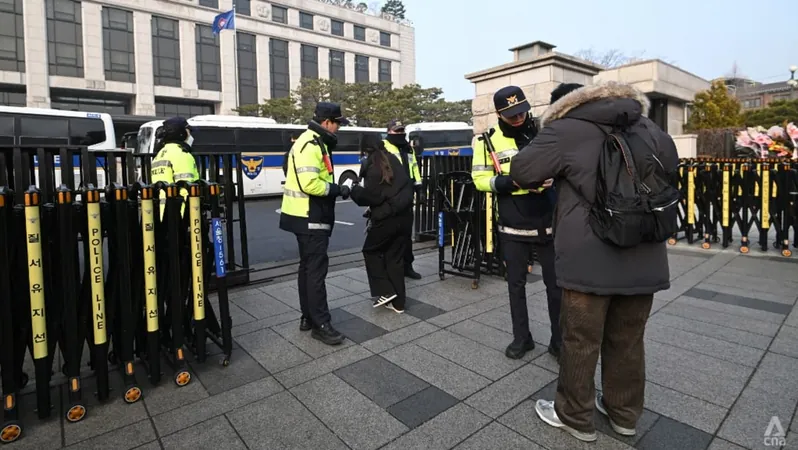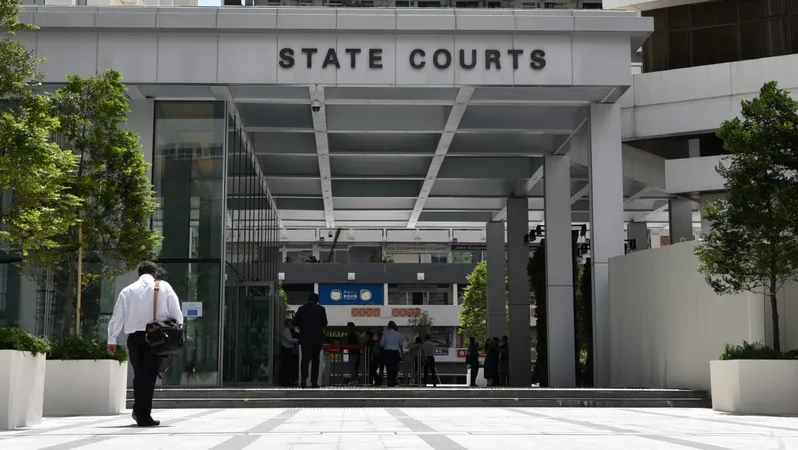
Tensions Escalate as South Korea's Impeached President Yoon Suk Yeol Faces Constitutional Court Showdown
2025-01-21
Author: Sarah
SEOUL: In a dramatic turn of events, South Korea's suspended President Yoon Suk Yeol is set to make his first appearance at the Constitutional Court on Tuesday, January 21, to engage in hearings that could determine whether he remains in office.
His lawyer, Yoon Kab-keun, confirmed the news, igniting discussions about the future trajectory of the country’s political climate.
Yoon’s presidency has been marred by a severe crisis following his controversial declaration of martial law on December 3, which lasted a mere six hours before it was overturned by lawmakers.
This unprecedented move not only led to his impeachment but also marks him as the first sitting South Korean president to be arrested amid allegations of insurrection.
The Constitutional Court is currently deliberating on the validity of this impeachment, with a verdict that could see Yoon ousted from power,
compelling new elections within 60 days if the ruling goes against him.
Notably, the hearings are set to continue even if Yoon chooses not to attend,
a point underscored by his absence during the first two meetings last week.
Adding another layer of complexity, Yoon has also been non-compliant with the Corruption Investigation Office (CIO),
which is probing the circumstances surrounding his martial law declaration.
Attempts to compel Yoon to participate in questioning have been thwarted due to his refusal to cooperate,
a development that could severely impact his standing in both the impeachment trial and the ongoing criminal investigations.
The political landscape in South Korea has become increasingly fraught,
especially after a recent court appearance where his detention was extended.
This decision sparked violent protests outside the court,
with hundreds of Yoon's staunch supporters clashing with police in a display of escalating tensions.
Experts suggest that Yoon's attendance at the Constitutional Court may be less about legal strategy and more about galvanizing his base of supporters.
As legal analyst Kim Nam-ju articulated, the implications of his presence are as much about stirring public sentiment as they are about following judicial protocols.
“Hearing from the defendant is vital for the court,
Kim said, but Yoon's refusal to engage with the criminal inquiries could further complicate his case.
Amid these tumultuous developments, Yoon has branded the ongoing criminal investigation as illegal,
positioning himself as a fighter against what he perceives as a politically motivated judicial process.
The opposition Democratic Party, which holds a majority in parliament following their victory in last year’s legislative elections,
has celebrated the unfolding events, labeling Yoon's arrest as 'the first step' toward restoring constitutional order.
The situation in South Korea remains fluid,
with the outcome of the upcoming hearings poised to ignite further political fallout and potentially redefine the presidency as the nation grapples with profound instability.



 Brasil (PT)
Brasil (PT)
 Canada (EN)
Canada (EN)
 Chile (ES)
Chile (ES)
 Česko (CS)
Česko (CS)
 대한민국 (KO)
대한민국 (KO)
 España (ES)
España (ES)
 France (FR)
France (FR)
 Hong Kong (EN)
Hong Kong (EN)
 Italia (IT)
Italia (IT)
 日本 (JA)
日本 (JA)
 Magyarország (HU)
Magyarország (HU)
 Norge (NO)
Norge (NO)
 Polska (PL)
Polska (PL)
 Schweiz (DE)
Schweiz (DE)
 Singapore (EN)
Singapore (EN)
 Sverige (SV)
Sverige (SV)
 Suomi (FI)
Suomi (FI)
 Türkiye (TR)
Türkiye (TR)
 الإمارات العربية المتحدة (AR)
الإمارات العربية المتحدة (AR)